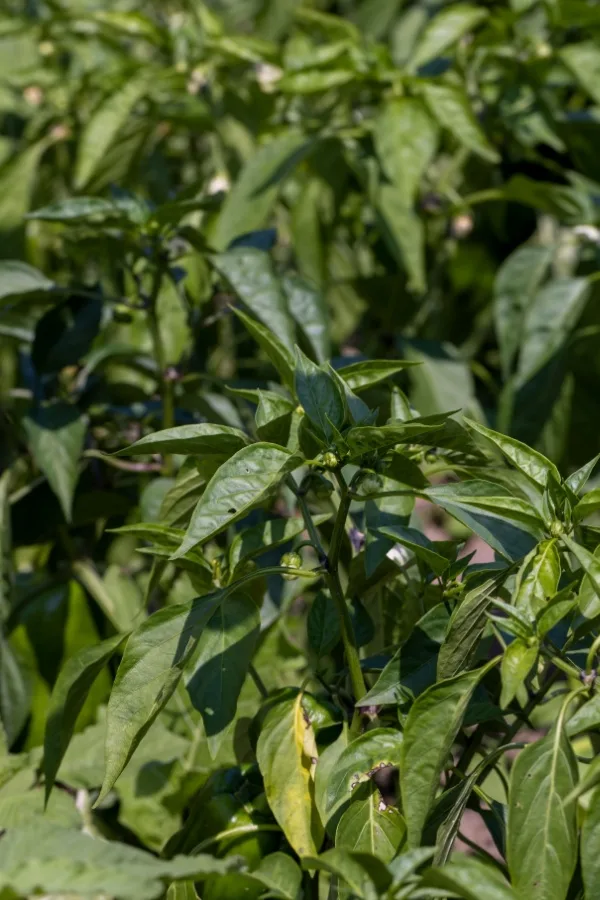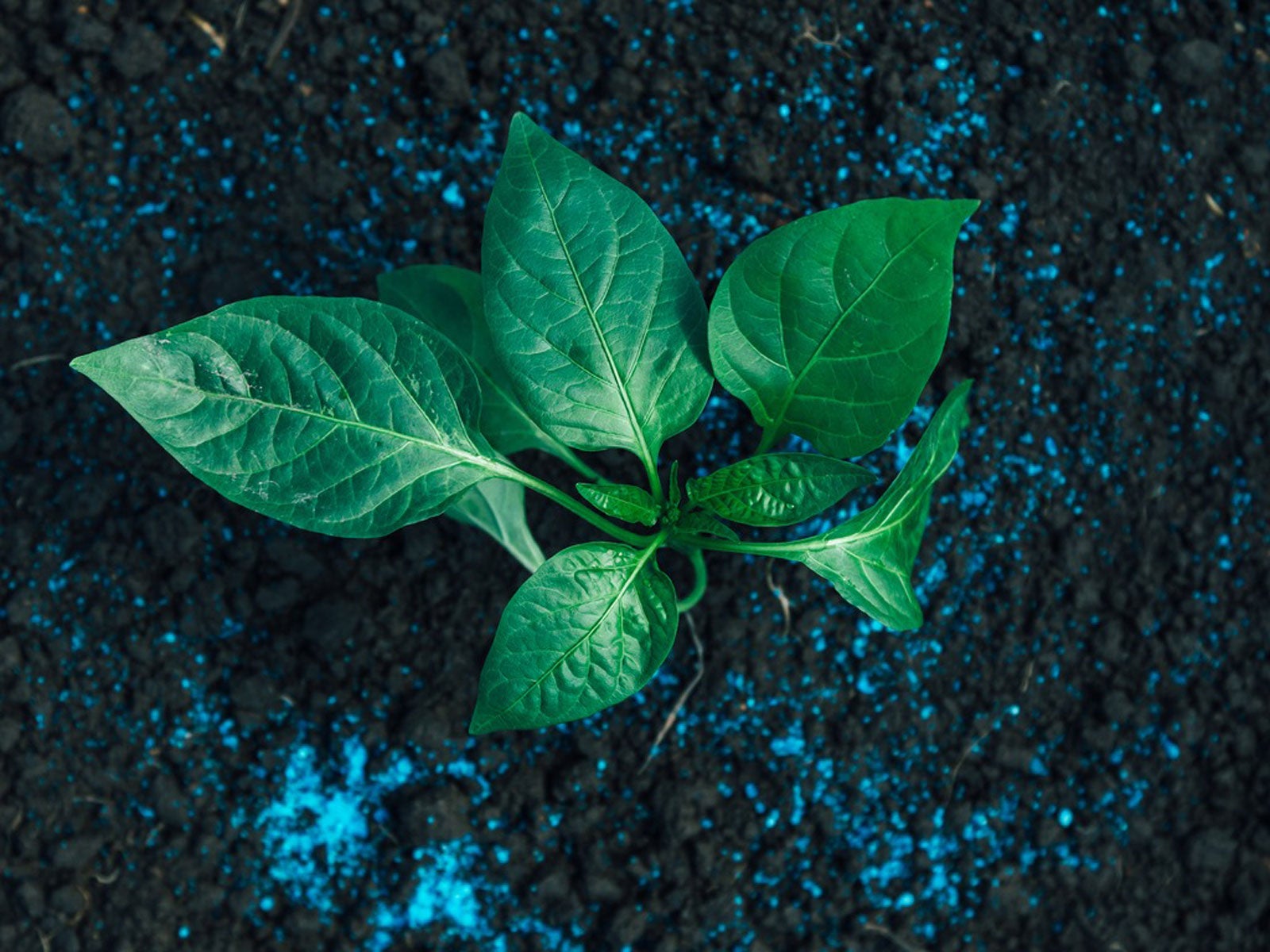Best Fertilizers for Peppers: Increase Growth and Taste Naturally
Best Fertilizers for Peppers: Increase Growth and Taste Naturally
Blog Article
Exactly How Plant Foods Play a Critical Duty in Cultivating Plentiful and healthy and balanced Pepper Crops
Fertilizers function as the foundation of effective pepper cultivation, using a strategic technique to nourishing the soil and cultivating optimum plant development. The intricate dancing in between important nutrients and the pepper plants' physical procedures underscores the critical function that fertilizers play in ensuring an abundant harvest. From sustaining robust root advancement to boosting condition resistance, the influence of plant foods is far-reaching in the farming of healthy and balanced and productive pepper plants. Stay tuned to reveal the nuanced methods which plant foods add to the growing of pepper plants and the lasting methods that underpin their effectiveness.
Importance of Nutrient-Rich Plant Foods
The utilization of nutrient-rich plant foods plays a crucial duty in boosting the productivity and top quality of pepper crops in modern farming techniques. Potassium, nitrogen, and phosphorus are key nutrients that are critical for the development and growth of pepper plants.
Poor levels of these nutrients can cause stunted growth, reduced returns, and sensitivity to conditions (best fertilizers for peppers). Nutrient-rich fertilizers provide a targeted service to make certain that pepper plants get the necessary aspects for optimum growth and performance. Additionally, these fertilizers assist improve dirt fertility with time, developing a sustainable setting for lasting pepper farming
Enhancing Plant Growth and Advancement
To maximize plant growth and advancement in pepper plants, tactical application of nutrient-rich plant foods is necessary. Fertilizers play a crucial duty in enhancing the general health and productivity of pepper plants by providing them with vital nutrients that may be doing not have in the soil. Nitrogen, potassium, and phosphorus are primary macronutrients required in large quantities by peppers for durable development. Nitrogen help in leafed environment-friendly growth and general plant vitality, phosphorus sustains origin development and flower formation, while potassium adds to disease resistance and fruit quality.
In addition to these macronutrients, trace elements such as zinc, iron, and magnesium are also important for the proper performance of numerous plant processes. Iron, for instance, is required for chlorophyll production, which is vital for photosynthesis and total plant development. Zinc plays a crucial duty in enzyme task and hormonal agent synthesis, affecting plant development and development at a cellular level. Magnesium is essential for the development of chlorophyll and overall power transfer within the plant.

Boosting Condition Resistance With Fertilizers
By strategically integrating targeted plant foods, farmers can boost the illness resistance of pepper plants, guaranteeing ideal plant health and performance. Fertilizers having important nutrients like phosphorus, potassium, and nitrogen play an essential function in reinforcing pepper plants' immune systems, making them a lot more resistant to numerous conditions.

Taking Full Advantage Of Pepper Return With Fertilizing
Using a well balanced fertilization strategy is crucial to accomplishing maximum pepper yield and making sure ideal crop efficiency. By giving peppers with the right nutrients at the correct time, farmers can significantly enhance their return capacity. Nitrogen, potassium, and phosphorus are crucial elements for pepper development, with nitrogen aiding in fallen leave and stem development, phosphorus supporting origin growth and blossom development, and potassium advertising general plant health and wellness.
To optimize pepper return, it is crucial to carry out soil examinations to identify existing nutrient degrees and identify any deficiencies that require to be resolved. Based on these results, farmers can create a customized fertilization strategy that meets the specific demands of their pepper plants. Furthermore, appropriate fertilization strategies such as split applications throughout the growing season can make sure continual vitamins and mineral schedule for the plants.

Sustainable Plant Food Practices for Peppers
In taking into consideration sustainable fertilizer methods for peppers, it is necessary to concentrate on long-term dirt wellness and environmental stewardship combined with optimizing crop efficiency. Sustainable plant food techniques aim to keep or enhance dirt fertility while minimizing damaging ecological effects. One essential strategy is using organic fertilizers such as compost, manure, or cover plants, which not just offer important nutrients to the peppers but additionally add to soil structure and microbial activity. These organic options help construct raw material in the dirt, boosting its ability to retain water and nutrients, thus sustaining lasting crop wellness and resilience.
In addition, accuracy agriculture techniques, such as soil screening and targeted nutrient applications, can help optimize fertilizer usage, guaranteeing that peppers obtain the nutrients they require without excess runoff into waterways. This not just profits the environment by websites reducing pollution however also conserves costs for farmers by decreasing waste. By embracing lasting fertilizer methods, pepper farmers can secure the health and wellness of their plants, dirt, and bordering ecosystems for future generations.
Conclusion
In conclusion, plant foods are essential for growing healthy and abundant pepper plants. best fertilizers for peppers. They give necessary nutrients for plant development and advancement, increase illness resistance, and take full advantage of yield. By implementing lasting plant food techniques, farmers can guarantee the long-lasting health and wellness of their pepper crops and add to a much more environmentally-friendly and reliable farming system
The detailed dance in between vital nutrients and the pepper plants' physiological processes underscores the crucial role that fertilizers play in ensuring a bountiful harvest.To enhance plant growth and growth in pepper plants, tactical application of nutrient-rich plant foods is crucial. Plant foods play an important role in enhancing the general health and efficiency of pepper plants by offering them with crucial nutrients that might be doing not have in the soil.By tactically including targeted plant foods, farmers can strengthen the illness resistance of pepper crops, guaranteeing ideal plant health and efficiency. Plant foods including crucial nutrients like phosphorus, nitrogen, and potassium play a critical function in strengthening pepper plants' immune systems, making them more durable to various illness.
Report this page